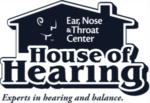“Several conditions can cause crackling in your ears. Here’s what you need to know about how it affects your health.”
As hearing care professionals, we hear a range of symptoms relating to ear conditions from our patients – most are common and can usually be identified as a known hearing challenge.
We understand that each patient experiences hearing issues differently – with a range of symptoms reported to us for the same condition.
One question we hear often is, “Why do I hearing crackling in my ear?” Well, I’m going to explain everything you need to know about crackling in the ears below to help you or a loved one overcome your discomfort.
What Are the Symptoms and Causes?
Impacted Earwax
We all produce a certain amount of earwax. Our bodies use it to protect the inner structures and prevent debris from entering. This is the ear’s way of self-cleaning. Chewing, swallowing, and yawning are ways your ears move earwax to the outer ear, where it dries and falls out.
According to the Hearing Loss Association, items placed in the ears—such as earplugs, hearing aids, and earbuds—may increase earwax buildup and prevent wax from exiting the ear canal. When earwax accumulates, it may cover the eardrum and lead to a crackling sound – sometimes described as a sound like Rice Krispies!
Clogged Eustachian Tubes
We all have small tubes that connect our ears and our sinuses. They keep fluid and pressure in your inner and middle ear at the correct level.
Your Eustachian tubes cannot open or close properly when you have allergies, a cold, sinus infections, or tumors in your nose. This causes ear popping, crackling, or a crunch sound in the ear.
Meniere’s disease
This condition affects the inner ear and leads to dizziness in most cases. It could affect one or both ears. Meniere’s disease is most common among people ages 20–50.
Symptoms of Meniere’s disease may include dizziness, hearing loss, a feeling of fullness in the ear, or tinnitus. Episodes can last from 20 minutes up to two hours or more.
The effects of Meniere’s disease have also been reported to cause crackling in the ears.
Middle Ear Infections
A middle ear infection is called “acute otitis media.” It happens when your Eustachian tubes are blocked and can’t drain fluid. This leads to crackling sounds in the ear and most commonly occurs in children.
If your child is complaining about a Rice Krispies sound in their ear – they might not be joking!
Temporomandibular Joint Problems
Your temporomandibular joint (TMJ) is the connection between your jaw and the rest of your head. It’s next to your ears. A problem with your TMJ can cause you to hear strange crackling noises in the ear.
Temporomandibular joint and muscle (TMJ) disorders are a group of conditions involving pain and dysfunction in the jaw muscles and joints. These disorders affect more than 10 million people in the United States.
You may have a TMJ disorder if you have crackling or a crunch sound in your ears, along with stiffness or pain in your jaw. There are three broad categories of TMJ disorders.
- Myofascial pain, which causes discomfort in the jaw muscles
- Internal derangement of the joint due to a dislocated jaw, injury to the lower jaw, or displaced TMJ disc
- Inflammation and degeneration from arthritis
How Can It Be Treated?
Treating crackling ears will depend on what’s causing the issue. Your audiologist can help you diagnose why you are hearing crackling in your ears and develop an effective treatment method.
Many cases of crackling or a crunch sound in the ears will go away on their own. It’s common to have clogged Eustachian tubes if the sound shows up during a cold or allergies. Using an over-the-counter decongestant can help unclog your ears while waiting for your body to recover.
For more assistance, look to these remedies.
- Ear drops may help soften the wax inside the ear for easy removal.
- Your audiologist can place tubes in the eardrums to equalize pressure and drain fluid.
- A doctor may recommend antibiotics, such as amoxicillin, for severe ear infections or those that last longer than 2–3 days.
- Bite guards sometimes provide relief for people with TMJ disorders. Surgery for TMJ disorders is a last resort and not consistently successful.
If you have TMJ issues, your doctor will focus on treating your joint. They may prescribe muscle relaxants to relieve joint pain and stiffness. They may recommend physical therapy or TMJ surgery if that doesn’t work.
Should I Seek Professional Help for Crackling in the Ears?
If you’ve had crackling in the ears that can be closely related to the sound of Rice Krispies for more than a week, or the problem seems to persist more often, then please come see us for a comprehensive hearing assessment.
After closely examining your ears, we can make an accurate diagnosis and possibly fix the problem right then and there.
If you have concerns about a loved one, then please call us with your questions. We are always standing by to help locals in the Northern Utah communities.


